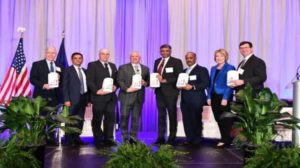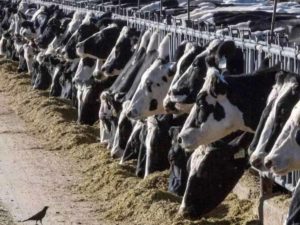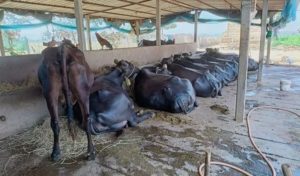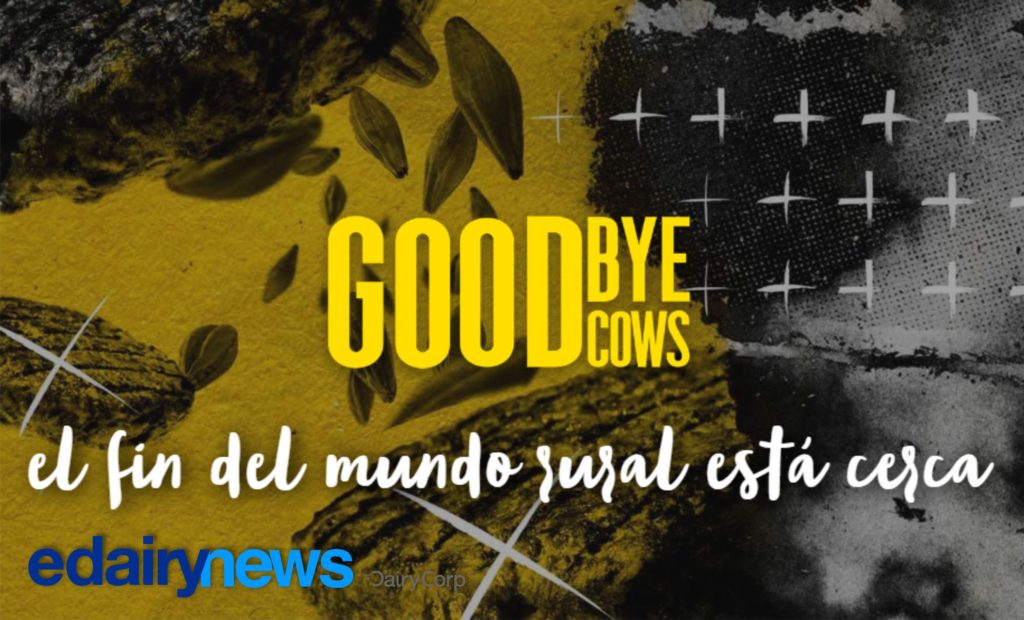Dairy Month started in 1937 as an incentive for people to drink more milk during the warmer months in summer, as dairy farmers had a surplus of milk that might have gone to waste. Now, over 80 years later, the situation seems very familiar. Coronavirus lockdowns intended to keep people safe and healthy have caused major dairy distributors to close their doors. Now, farmers face one of the largest drops in sales they’ve ever seen. That leaves them with a lot of milk that’s going nowhere.
Lisa Erickson, the plant manager of Crystal Ball Farms in Osceola, Wisc., knows just how important dairy is to communities.
“There’s so many different variables, but yet you have one product,” Erickson said, admiring the versatility of cheese. “Just in Wisconsin alone, there are over 600 different kinds of cheese, made by different artisanal cheesemakers.”
Indeed, Wisconsin’s cheesemaking efforts are globally recognized. A Wisconsin cheese won best in show at the World Champion Cheese Contest in 2016. But arguably more important is the impact Wisconsin’s dairy services have on the state’s economy and food industry.
In 2019, 23 percent of US dairy farms were in Wisconsin, according to the Dairy Farmers of Wisconsin. Wisconsin dairy farms also produced about 14 percent of US milk in 2018, and annually generate around 43.4 billion dollars for the state’s economy.
But to the people like Erickson and the rest of the Crystal Ball Farm staff who spend day after day crafting Wisconsin’s prized food group, dairy is much more personal. With all the training, certificates, and day-to-day labor, dairy production ends up being an intense journey.
“Crystal Ball stands for looking into the future of dairy,” Erickson said. Troy DeRosier and his wife Barb own the farm and are always seeking innovation in their trade.
However, not even Crystal Ball Farms could predict this year’s events.
“I don’t think anybody expected it,” DeRosier said about the damage caused by the Coronavirus. “[It] took everybody by surprise.”
Just because people have been staying home these last few months doesn’t necessarily mean they’re drinking less milk. However, the larger issue is where they’re getting their milk. Where consumers purchase their dairy products determines what distribution channels are available to dairy farms.
“All of a sudden, schools are shut down,” Erickson said. “A lot of milk goes to schools; well, now where is that milk going to go now?”
Students are still drinking milk, but now they’re getting it from the grocery store. For milk producers who cater to schools, transitioning to selling to grocery stores is challenging, and it needs to happen quickly. For the farmers who have no means to accomplish this, the loss is significant.
Other businesses that local dairy farmers frequently rely on are coffee shops and restaurants. Even with take-out and drive-in options, sales at cafes have been drastically cut. Therefore, the cheese, coffee creamer, and milk have all been cut too.
“You can’t shift and change distribution,” Erickson said. “We’ve heard a lot of stories about people dumping milk – we never dumped any milk here. But they dumped it because they had no distribution channels.”
Tragically, thousands of gallons of milk are being dumped and wasted. Sales are down, and farmers have no reason to process any of it.
Fortunately for Crystal Ball Farms, they’ve found ways to reduce waste, such as sending excess milk to a co-op. Once the milk is there, the co-op processes it and uses it in various products.
DeRosier explained that about half Crystal Ball’s sales went to coffee shops and restaurants. Combined with drastic price cuts on their products, cutting out restaurant revenue was a major blow to finances.
“I think at that level,” he said, “we were losing about fifteen thousand dollars a month.”
And that leads to another problem: the economy. Because dairy products play a significant role in fueling Wisconsin’s economy, the losses from dumped milk and price cuts only make things look bleaker.
To keep up with how other farms are handling the ever-developing situation, DeRosier and Erickson have been doing a lot of research. By talking to their distributors and investigating other local dairy producers, they can get a sense of how to navigate business these days and support their fellow farmers.
“One of the reasons why I fell in love with the dairy industry,” Erickson said, “is that dairy farmers – or cheesemakers, or creameries – help each other. And we sell each other’s products.”
Despite the Coronavirus’ dismal effect on the dairy industry, Erickson believes that some good will come of it. Currently, consumers are realizing the importance of shopping locally and supporting community farmers. With intentionality to educate local residents, farmers might be able to gain lasting support beyond the end of the pandemic. Now is the time for people to realize how beneficial it is to buy local, for their health and for their community.










